Economist
An expert in the field of economics
What is an Economist?
A professional practitioner of economics is known as an economist. They are experts who examine the relationship between resources and their output or production. They look at small and local societies, nations, and economies at a global level.
They study, develop, apply concepts and theories, and write about economics and economic policies. Policies covered are related to tax laws, interest rates, international trade agreements, corporate strategies, and employment programs.
Macroeconomic, microeconomic, and financial statement analysis are the subfields they cover under economics. Tools and analytical methods like statistics, econometrics, mathematical economics, etc., are used for analyses.
Around 36% of them, according to the Bureau of Labor Statistics, work either in state or federal agencies. Corporations employ them, work as professors or be a part of the economic think tank of the nation.
Key Takeaways
-
Economists study resource-output relationships, analyzing global and local economies, while crafting economic policies and theories.
-
They analyze tax laws, trade pacts, corporate strategies, and more, using tools like econometrics and statistics.
-
Covering macro and microeconomics, economists use mathematical models and statistical methods for analysis.
-
Economists work in agencies, corporations, academia, and think tanks, offering policy advice and research.
-
Economists research, analyze trends, develop plans, advise on policies, and support economic growth through consultations and data-driven recommendations.
Duties and Responsibilities of an Economist
- Research is carried out on the trends considering economics related to the production and distribution of services and goods.
- Analyzing the reports made from research using various models and techniques.
- For forecasting trends and making policies, they develop economic plans and procedures.
- They works towards solving economic problems.
- They advise and provide consultations to businesses, organizations, and government agencies.
- Compilation of data used in research.
- Using knowledge of econometrics and sources of information, they establish concepts and methodologies for collecting and processing data.
- Preparing reports and graphical establishments by arranging information and research results.
- Maximization of profit with efficient use of available resources.
- Developing and transferring knowledge products building capacity on economic principles and methods.
- Serves as advisor to politicians for the enactment of economic policies.
Most famous Economists
An economy requires perfect planning for stability and prosperity conducted by the professional most efficiently. Below are some most famous of these individuals from history who have contributed their best.
They have provided perfect answers and theories for solving various economic questions required for economic growth. Every country accounts for different influential and experienced people to work for them.
| S.N. | Names | Date of Birth | Date of Death |
|---|---|---|---|
| 1 | John Maynard Keynes | 5 June 1883 | 21 April 1946 |
| 2 | Friedrich Von Hayek | 8 May 1899 | 23 March 1992 |
| 3 | Ludwig Von Mises | 29 September 1881 | 10 October 1973 |
| 4 | Milton Friedman | 31 July 1912 | 16 November 2006 |
| 5 | Arthur Pigou | 18 November 1877 | 7 March 1959 |
| 6 | Paul Samuelson | 15 May 1915 | 13 December 2009 |
| 7 | John Kenneth Galbraith | 15 October 1908 | 29 April 2006 |
| 8 | John Hicks | 8 April 1904 | 20 May 1989 |
| 9 | Bill Phillips | 23 September 1964 | Alive |
| 10 | Robert Lucas | 15 September 1937 | Alive |
John Maynard Keynes
He was an English economist, financier, and journalist who worked towards fundamental changes in the theory of macroeconomics and government policies. Alfred Marshall influenced him.
Keynes started his career as a civil servant in Whitehall at India Office and wrote his first book, "Indian Currency and Finance," in 1913. His outstanding contribution made him appointed to the Royal Commission on Indian Currency and Finance.
Keynes worked in the Treasury for the British government during the First World War in 1915. After resigning, he wrote another masterpiece named "The Economic Consequences of Power" in 1919.
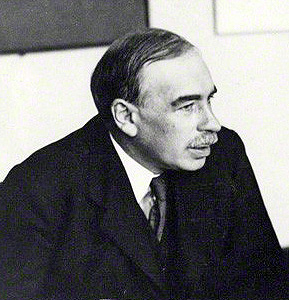
Some of the books he published
- A Treatise on Probability
- A Revision of the Treaty
- A Tract on Monetary Reforms
- Economic Consequences of Mr. Churchill
- The General Theory of Employment, Interest, and Money
As the founder of Keynesian Economics, he gave his perception of economic recession and the role of government in curbing the same. He emphasized the active role of government by influencing spending and taxes.
The idea of the former book was to explain the relationship between the level of employment and aggregate demand. In the latter, he introduced the concept of full employment and the government's role in maintaining it.
Keynes led a revolution in economic thinking during the Great Depression. He also designed the international economic institutions established after the second world war.
He is "Britain's most famous 20th-century economist" according to The Economist and a part of the "Most Important People of the Century" given by Time magazine.
Friedrich Von Hayek
Hayek was an Austrian economist, philosopher, and legal theorist. He was a defender of classical liberalism and free-market capitalism. Also, he was the most prominent critic of the socialist consensus.
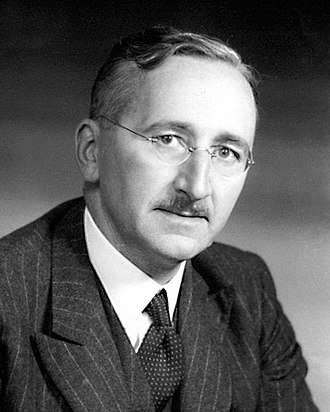
He received the Nobel Memorial Prize in Economic Sciences in 1974 for his work on money, economic fluctuation, and interdependence of social, economic, and institutional phenomena.
People determined their plans using his theory on how the changing prices communicate information. Between 1940 and 1943, he gave the world of economics his book "The Road to Serfdom."
He was appointed to the Order of the Companions of Honor, on the advice of Prime Minister Margaret Thatcher, by Queen Elizabeth II in 1984 for his services in studying economics. He was also awarded the Hanns Schleyer Prize.
The Presidential Medal of Freedom by President George H.W. Bush in 1991 was given to him, and in 2011 his article "The use of knowledge in society" was chosen among the top twenty articles during its first hundred years.
Ludwig Von Mises
He was an Austrian school economist, logician, historian, and sociologist who wrote extensively on classical liberalism and its societal contribution. He was one of the most influential political and economic thinkers of the 20th century.
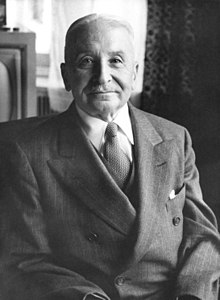
In 1912, his best work was published with the title "The Theory of Money and Credit," which was also used as a textbook for money and banking. The extension to it included marginal utility theory to money.
The general conceptual foundation he adopted was praxeology and has also set a methodological approach to economics. His book, "Human Action," used praxeology, a distinctive methodology to study human behavior.
He was the founder of the Austrian Institute for Business Cycle in 1926 and also gave business cycle theory. The book highlights the elevation of unemployment of resources and labor, hyperinflation, and a crack-up boom.
Mises also served as a front office in the War Department of Austria during the first world war. In addition, he was a strong opponent of Nazism and Austrian Chancellor Engelbert Dollfuss's economic advisor.
He was an opponent of government intervention in economic matters and also adhered to the principle of laissez-faire. Instead, he focused on the free market economy as the most effective tool for producing and distributing goods and services.
Milton Friedman
Milton Friedman was an American economist, educator, and statistician. He insisted that studying economics enables one to understand the working of the real world and separates it from being a mathematical game.
In 1956, he promoted the changes in the money supply in his book "Studies in the Quantity of Money." He established the relationship between money supply and real economic activities in the short run and price level in the long run.
In 1957, he wrote "A Theory of the Consumption Function" and articulated the permanent income hypothesis, savings decisions, and household consumption. The hypothesis explained questions arising in empirical data.
He is remembered the most for his contribution to monetary economics and is known as the founder of monetarism. He countered the business cycle by emphasizing the use of the government-sponsored policy.
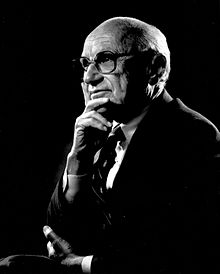
He has raised questions on many constructs of Keynesian economics in his work. In 1976 he was awarded the Nobel Prize in Economics and later, in 1977, became a member of the Hoover Institution of War, Revolution, and Peace.
Over time, he became an articulate spokesman for free societies and free markets—his ideas regarding monetary policy, privatization, taxation, and deregulation significantly impacted government policies.
He has covered many public policy issues and economic topics in his career. The Economist named him "the most influential economist of the second half of the 20th century".
Arthur Pigou
Arthur Cecil Pigou was an English economist and teacher. He was the founder of the School of Economics at the University of Cambridge.
He contributed to:
- Welfare economics
- Business cycle theory
- Public finance
- Unemployment, etc.
He gave the distinction between private and social marginal products and costs and the idea that internalizing externalities or correction of market failure can be done through a mixture of taxes and subsidies.
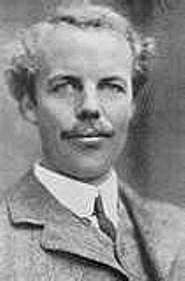
He served on various royal commissions, including the 1919 Royal commission on income tax and the Cunliffe Committee.
His famous works are "The Pigou Effect," which highlights the stimulation of employment and output caused by an increase in consumption due to government actions, and "The Economics of Welfare."
Paul Samuelson
Paul Anthony Samuelson was an American economist known as the "Father of Modern Economics." He considered mathematics the natural language and made significant contributions to the mathematical foundations of economics.
He won the Nobel Memorial Prize in Economic Sciences in 1970 and the National Medal of Science for his fundamental contribution to economic sciences in 1966, America's top science honor.
His major subjects of study are:
- Accelerator principle
- Econometrics
- Human behavior
- The universal nature of consumer behavior
- Capital theory
- Welfare economics
- Analysis of public goods
- Integration of international trade with general equilibrium and multiplier.
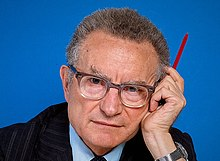
The basic theme of his work was provided in "Foundation of Economic Analysis" in 1947, and his introductory textbook, an all-time classic, "Economics," was published in 1948. He also got numerous articles published between 1966 and 1981.
John Kenneth Galbraith
Galbraith was a Canadian- American economist, public official, diplomat, and intellectual. He served in various government posts as editor of Fortune magazine, politically active liberal academician, and ambassador to India from 1961 to 1963.
During his career, he wrote various books, including:
- American Capitalism: The concept of countervailing power (1951)
- The great crash 1929 (1955)
- The affluent society (1958)
- The new industrial state (1967)
- The culture of contentment (1992).
His inclination was toward post-Keynesian economics from an institutionalist perspective as a proponent of economics. His primary focus was the influence of the market power of large corporations and promoted the use of Pigovian and large value taxes.
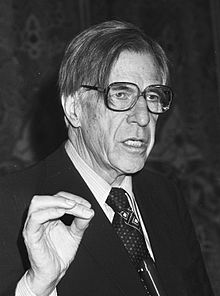
He received numerous awards during his lifetime like the Medal of freedom in 1946, the Presidential Medal of freedom in 2000, the Lomonosov gold medal in 1993, the Order of Canada in 1997, and Padma Vibhushan: India's second-highest civilian award in 2001.
John Hicks
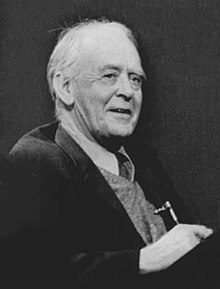
Hicks was the most influential British Economist of the 20th century. He served as a lecturer in various universities and as a labor economist. For his massive contribution to Economic Sciences, he also received the Nobel Prize in 1972.
His significant concepts covered include:
- The IS-LM model: a summary of the Keynesian view in graphical form
- Liquidity trap
- The idea of elasticity of substitution
- General equilibrium theory
- Welfare economics
- Theoretical variations
- Temporary equilibrium.
Hicks formalized comparative statics and developed a Kaldor- Hicks efficiency compensation criterion. This was used for the welfare comparison of economic states and alternative public policies.
He gave three measures to describe income.
- In money terms: the maximum amount spent keeping the capital value of prospective receipts during a period.
- Market price neutral: the maximum amount spent in a week, ensuring the ability to spend the same amount the next week.
- Market prices are considered: the maximum amount spent in a week and expected to spend the same amount in real terms in the next week.
He produced many books including:
- The Theory of Wages (1932)
- Value and capital (1939)
- The Foundation of Welfare Economics (1939)
- A Contribution to the theory of trade cycle (1979)
- A revision of Demand Theory (1986), etc.
Bill Phillips
Alban William Housego is a New Zealand economist popularly known as Bill Phillips. He served as a professor at the London School of Economics for most of his academic career.
During the Second World War outbreak, he joined the Royal Air Force, and later in 1946, he served as a member of the Order of the British Empire. He was made a member as a facilitation for his war services.
He developed a curve in the post-war period to examine the relationship between unemployment and inflation rates, known as the "Phillips Curve." As a display of his engineering skills, he created "Phillips Machine - MONIAC."
MONIAC was an analog computer that inspired hydraulic macroeconomics as it used hydraulics to model the workings of the British economy. In contrast, hydraulics is an applied science and technology which uses liquid and lots of mechanical properties.
He contributed significantly to optimal control theory, time series techniques, moving average model, and estimating parameters in stochastic difference equations. He also made several contributions relating to stabilization policy.
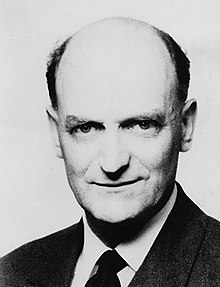
Robert Lucas
Robert Emerson Lucas Jr. is an American economist and the John Dewey Distinguished Service Professor Emeritus in Economics at the University of Chicago. He was the recipient of the Nobel Prize in Economics in 1995.
His study subjects have been economic growth, financial system, economic theory, investment, and rational expectation theory. He gained popularity with the questions raised on the conclusions in macroeconomics and the role of government given by Keynes.
Lucas introduced the world with the concept of the "policy ineffectiveness proposition," highlighting rational expectations of people and the creation of noise due to manipulation of the economy with the help of policies leaving no improvements in the performance.
His work include:
- Studies in Business Cycle Theory (1981)
- Models of Business Cycles (1987)
- A collection of articles titled Lectures on Economic Growth (2001)
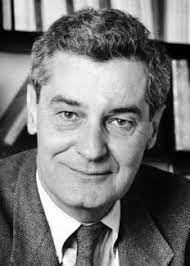
Many economists have made their part of contributions to the study of various fields of economics. They have provided factors and elements for understanding things that drive trends and pave the way for others to reach the future.

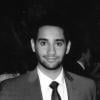







or Want to Sign up with your social account?